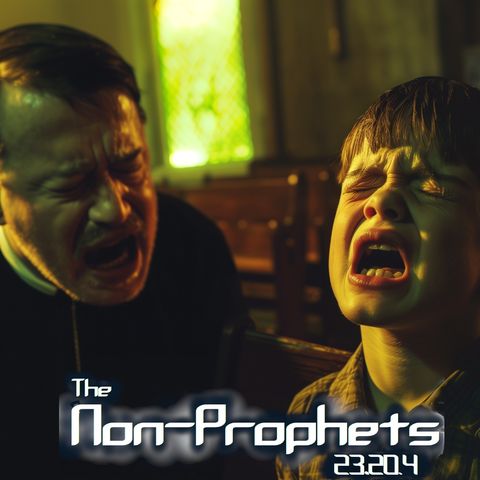Pastor Claims PTSD and Mental Illness Are Not Real

Descarga y escucha en cualquier lugar
Descarga tus episodios favoritos y disfrútalos, ¡dondequiera que estés! Regístrate o inicia sesión ahora para acceder a la escucha sin conexión.
Pastor Claims PTSD and Mental Illness Are Not Real
Esta transcripción es generada automáticamente. Ten en cuenta que no se garantiza una precisión absoluta.
Descripción
Pastor John MacArthur says there is no such thing as mental illness, calls PTSD ‘grief’ The Christian Post, By Leonardo Blair, on May 01, 2024 https://www.christianpost.com/news/john-macarthur-says-there-is-no-such-thing-as-mental-illness.html In this segment, the...
mostra másThe Christian Post, By Leonardo Blair, on May 01, 2024
https://www.christianpost.com/news/john-macarthur-says-there-is-no-such-thing-as-mental-illness.html
In this segment, the speakers delve into a controversial statement made by John MacArthur regarding mental illness, pharmaceuticals, and parenting. MacArthur claims mental illness is a "noble lie" and suggests that medicating children for mental health conditions can lead to drug addiction and criminal behavior. He also blames Big Pharma for fabricating diagnoses to sell medication. This discussion leads to reflections on the intersection of religion, mental health, and societal attitudes.
Phoebe introduces the topic, noting MacArthur's assertion and the broader implications of his statements. Eli expresses incredulity at MacArthur's views, highlighting the harmful impact such rhetoric can have on those in need of mental health support. Scott provides context by comparing MacArthur's stance with that of Australian Prime Minister Scott Morrison, who has spoken openly about his own mental health struggles.
The conversation shifts to the prevalence of similar beliefs within certain religious communities, with Eli citing statistics and historical examples. Damien adds his perspective, emphasizing the need for critical thinking and the danger of religious dogma supplanting evidence-based approaches to mental health.
The speakers discuss the harmful consequences of stigmatizing mental illness within religious communities, such as discouraging individuals from seeking help and perpetuating harmful stereotypes. They also critique MacArthur's assertion that proper parenting can prevent mental illness, pointing out the lack of evidence and the potential harm in neglecting legitimate medical treatment.
Scott humorously highlights the irony of MacArthur's condemnation of medication while advocating for prayer as a solution. Eli shares personal anecdotes and cultural references to illustrate the broader societal impact of such attitudes.
The conversation concludes with a call for critical thinking and compassion in addressing mental health issues, rejecting harmful rhetoric and promoting evidence-based approaches to support those in need.
The Non-Prophets, Episode 23.20.4 featuring Phoebe Rose, Eli Slack, Scott Dickie and Damien H
Información
| Autor | Atheist Community of Austin |
| Organización | Atheist Community of Austin |
| Página web | - |
| Etiquetas |
Copyright 2024 - Spreaker Inc. an iHeartMedia Company

Comentarios